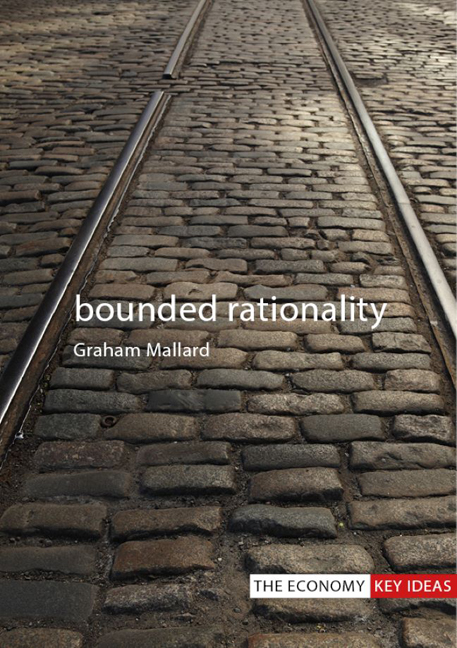1 - Different conceptions of decision-making
Published online by Cambridge University Press: 20 December 2023
Summary
Should a seller in a prominent position in its market, knowing potential customers will sample its goods before those of its rivals, charge a higher or lower price than its non-prominent competitors? Should a government increase competition or information provision in order to protect customers from being exploited by charlatans selling services of no actual value? Should we allocate our limited memory across all the decisions we have to make or should we devote it to only one of them? A research project in the 1950s at the Graduate School of Industrial Administration at the Carnegie Institute of Technology (now part of Carnegie Mellon University) led to two very different views of how we make decisions, which have very different implications for questions such as these. This project split the Graduate School, and the economics discipline as a whole, in two, but also led to the concept of bounded rationality, the study of which has become one of the most interesting and wide-reaching fields of economics. We explore this field in what follows, which will take us into the realms of mathematical modelling, artificial intelligence and cognitive science. It will also lead to surprising insights about situations as diverse as how businesses should launch new goods, the likelihood of centrist candidates being successful in elections and how governments should protect our interests most effectively. This exploration will enrich our understanding of the everyday situations in which we find ourselves and will at times show what we think has been proved by traditional economics to be incorrect, even harmful.
The schism
The research project focused on how businesses make decisions and was conducted by a team made up of some of the smartest minds in the field. John Muth's interpretation of the resulting data was that businesses make their decisions according to what became known as rational expectations. According to this view, businesses are able to accurately identify relationships and lines of causation between the variables that are relevant to them. They are able to quickly establish the likely effects of any changes in their environment, enabling them to continuously identify their optimal courses of action.
Information
- Type
- Chapter
- Information
- Bounded Rationality , pp. 1 - 20Publisher: Agenda PublishingPrint publication year: 2020
